Search Results
Search
Filter results
Advanced Filters
Your search returned 280 Solutions
-
Preventing bullying in English schools
A variety of resources have been developed to raise awareness at English schools. These include materials on how to challenging offensive language, a language guide, and a history of disability harassment and bullying. The tools are now available for all students, parents, and teachers on the Anti-Bullying Alliance website.
World of Inclusion, United Kingdom -
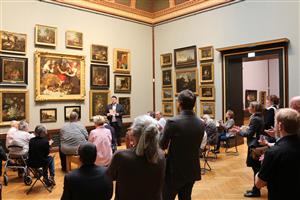
Training people with disabilities to be museum guides
Capito Mecklenburg-Vorpommern, together with the Staatliches Museum Schwerin, has developed a course that trains people with disabilities as art mediators. The course not only teaches art history, but also skills in dealing in dealing and communicating with different visitors or in handling difficult situations.
capito Mecklenburg-Vorpommern, New Ways to Art, Germany -
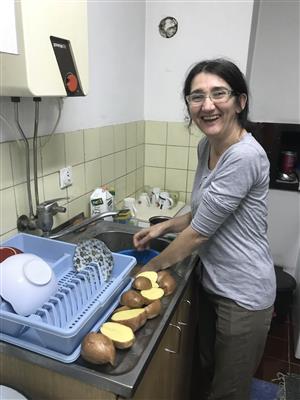
Person centred assistance and accommodation in communal housing
"Supported Living in the Community" places people with intellectual disabilities in shared apartments and supports them individually. Following a pilot between 2005 and 2008, the programme has since grown to a long-term project with 39 adults living in 12 apartments across the city of Novi Sad. Nine of them previously resided in institutions.
School for Elementary and Secondary Education - Milan Petrovic, Serbia -
Creating school communities of acceptance, inclusion, and respect
The goal of the Special Olympics Unified Strategy for Schools and Youth is to reduce bullying and exclusion, promoting healthy activities and engages young people in pro-social activities. 2014/2015 6,424 youth participated at 184 Arizona schools and 335,463 youth were exposed to awareness and advocacy messaging and activities.
Special Olympics Arizona, United States of America -
One children’s book in nine accessible formats
The project promotes the concept of inclusion through book workshops for children, teachers, and educators allowing children aged 7 to 11 years to experience inclusion in a sensory and playful way. The main feature is the children's book "Sonhos do Dia" (Dreams of the Day), which is presented in nine diverse and accessible formats.
WVA Editoria - Accessible Publishing, Brazil -
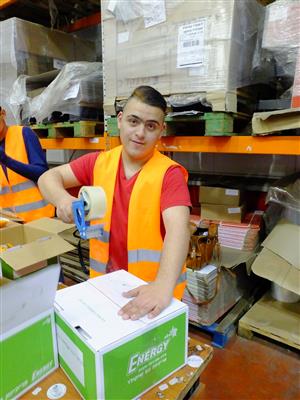
A transition into adulthood programme for young people with disabilities
Creating a Future prepares students between the ages of 16 and 21 for adulthood through employment skills and future orientation training. It also supports preparation for employment through an assessment of an individual’s interests and strengths as well as by providing work experience.
Israel Elwyn, Creating a Future, Israel -
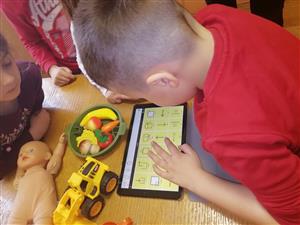
UNICEF-based technology project supporting young people with communication impairments
UNICEF's Giving Voice to Every Child: Southeast Europe project using Cboard, a free augmentative and alternative Communication, to support children with communication impairments. From 2019 to 2023 3,000+ children benifited.
Giving Voice to Every Child, Serbia -
Large-scale, all-encompassing training and transition programme
The programme aims to improve the economic and social integration of young people with disabilities in Armenia. To this end, various activities are carried out. These include vocational training through inclusive courses, which have been created in vocational training centres throughout the country.
Bridge of Hope, Programme “Right to Earn a Living”, Armenia -
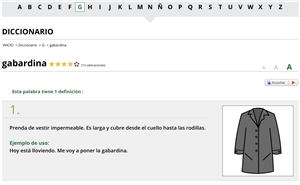
Free online Spanish dictionary written according to easy reading guidelines
Diccionario Fácil is a free online Spanish dictionary service developed by Plena Inclusion Madrid, an NGO. It provides definitions according to the Easy Reading Guidelines, validated by people with intellectual disabilities, and also providing employment opportunities for them.
Plena Inclusion Madrid, Diccionario Fácil – Easy Dictionary, Spain -
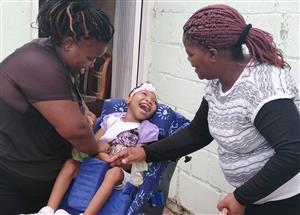
Digital-based support group for parents of children with disabilities
The Parent Network is a community-based support group for parents of children with disabilities, accessible through a dedicated app but also in person through designated volunteers. Launched in 2020 by Shonaquip Social Enterprise from South Africa, it already had some 1,000 participants in 2022.
Shonaquip Social Enterprise, Parent Network, South Africa